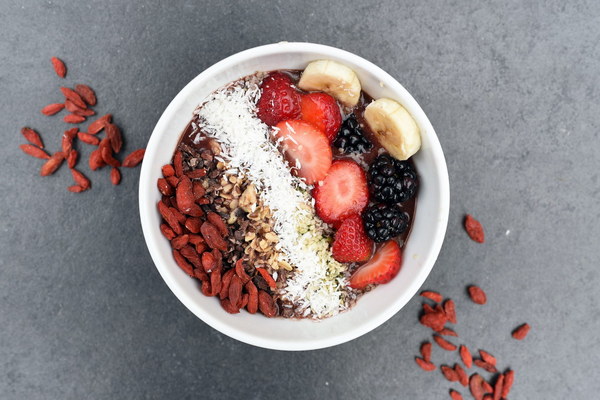Solving Sleepless Nights A Nutritional Approach to Children's Insomnia
Sleep is an essential part of a child's growth and development. However, many children face difficulties in falling asleep or staying asleep throughout the night, leading to a range of issues such as mood swings, decreased concentration, and poor academic performance. In this article, we will explore the nutritional approach to addressing children's insomnia and discuss the benefits of incorporating certain foods into their diet.

First and foremost, it's important to recognize that a child's diet can significantly impact their sleep quality. Here are some key nutritional strategies to help your child overcome sleepless nights:
1. Establish a bedtime routine: A consistent bedtime routine can signal to the body that it's time to wind down. Include calming activities like reading a book, taking a warm bath, or listening to soothing music. Avoid electronic devices, as the blue light emitted can interfere with the production of melatonin, the hormone responsible for regulating sleep.
2. Focus on a balanced diet: Encourage your child to consume a well-rounded diet that includes a variety of nutrients. This will not only support their overall health but also improve sleep quality. Here are some specific foods that can help:
a. Rich in magnesium: Magnesium is a natural relaxant that can help children unwind and fall asleep more easily. Foods high in magnesium include almonds, cashews, black beans, and avocado.
b. High in calcium: Calcium plays a vital role in the production of melatonin. Incorporate dairy products like milk, cheese, and yogurt, or calcium-rich alternatives such as fortified plant-based milk and tofu.
c. Rich in vitamin B6: Vitamin B6 is essential for the production of melatonin. Foods high in B6 include bananas, potatoes, and chickpeas.
d. High in tryptophan: Tryptophan is an amino acid that can increase the production of serotonin, which then converts to melatonin. Foods containing tryptophan include turkey, chicken, eggs, and dairy products.
3. Avoid stimulants and heavy meals: Certain foods and beverages can interfere with a child's ability to fall asleep. Avoid serving heavy meals, caffeine, and sugar-rich snacks close to bedtime. Instead, opt for a light, nutritious snack like a banana or a handful of almonds.
4. Hydration: Ensure that your child stays hydrated throughout the day, but avoid drinking large amounts of fluids before bedtime to prevent nighttime awakenings due to frequent bathroom trips.
5. Create a sleep-friendly environment: A comfortable, quiet, and dark bedroom can promote better sleep. Invest in blackout curtains, a white noise machine, or a night light if needed.
By implementing these nutritional strategies, you can help your child achieve a more peaceful and restful sleep. Remember, each child is unique, so it may take some trial and error to find the right combination of foods and habits that work best for your little one. Consult with a pediatrician or a registered dietitian if you have concerns about your child's sleep or diet. With a bit of patience and care, you can help your child overcome sleepless nights and enjoy a more restful sleep schedule.









